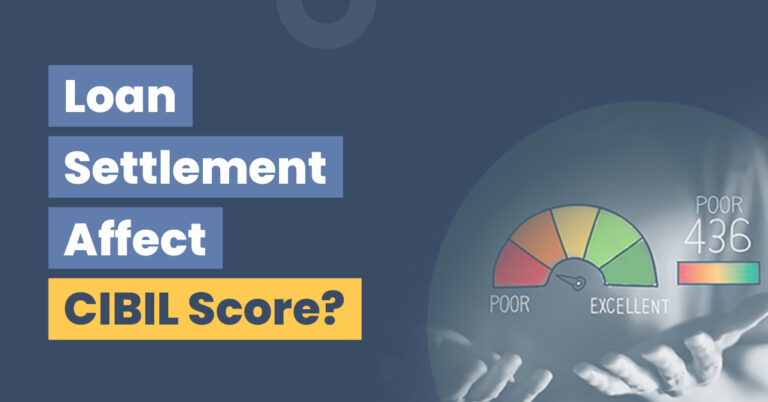
CIBIL Credit Score
Management of personal finances comes down to mainly this- how would you maintain a good credit score? Credit Information Bureau (India) Limited, or CIBIL, is one of the primary credit bureaus in India, responsible for tracking and reporting on individuals’ credit history. A loan settlement is actually an agreement wherein a part of your outstanding loan balance shall be repaid. This can significantly affect your CIBIL credit score, so it is best if you know how this process works and what impact it could have on you especially if you are considering or facing such situation.
What is a Loan Settlement?
KNOW MORE ABOUT CIBIL Credit Score
In loan settlement, a borrower negotiates to pay an amount that is less than the total outstanding balance on a loan. This happens in case of very severe financial difficulties where the borrower is unable to make regular payments. A lender accepts the reduced amount for settling debt and leaves the rest to be written off.
Impacts on Your CIBIL Credit Score
1. Negative Mark on Your Credit Report
When you settle a loan, the settlement is reported to CIBIL and other credit bureaus. This will stay on your credit report for years. Often, the settlement account will be marked with a “Settled” status rather than a “Paid in Full” or “Current” status. Do not be surprised if this sends up a red flag to future lenders.
2. Credit Score Dropping Down
Typically, the short-term consequence of any type of loan settlement is a depression of your credit score. The extent depends on the overall credit history and the number of settlements. Every settlement may suggest that you failed to meet your original terms on the loan and could severely impact your credit score.
3. Long-term Consequences
Even though the short-term impact of a settlement is harmful, the long-term can be better tolerated with prudent credit behaviour. Provided you have a clean record of credit and do not commit any more defaults, your credit score will likely recover over time. However, the status of a settled record will appear on your report for many years, thereby posing a constraint on how easily you will gain fresh credit.
4. Problem in Availabilities of New Credit
Lenders view a settled loan as a risk indicator. As a result, you may find it challenging to obtain new loans or credit cards. If you are approved, you might face higher interest rates or less favourable terms due to the perceived risk associated with your credit history.
Steps to Mitigate the Impact
1. Negotiate Wisely
If you are considering a loan settlement, try to negotiate terms that will have the least impact on your credit report. Aim for a settlement agreement that is less damaging to your credit history, and ensure that the lender reports the settlement to the credit bureau accurately.
2. Improve Your Credit Score Post-Settlement
Concentrate on rebuilding your credit score after the settlement. Rebuild your credit score by paying bills on time, decreasing credit card balances as much as possible, and avoiding more defaults. You can also monitor your development by regularly checking on your credit report.
3. Seek Professional Advice
Consider consulting a credit counsellor or financial advisor. They can guide you on managing your finances and improving your post-settlement credit score.
Conclusion
A loan settlement may indeed hurt your CIBIL score in both the short and long terms. Nevertheless, it does not have to be a permanent barrier to good credit health. Now, knowing the implications and engaging in proactive steps to manage and improve your credit profile can help you recover from a settlement and get you back onto the path of potentially higher financial stability. After all, good financial habits and responsible credit management will help you build and preserve a healthy credit score.
